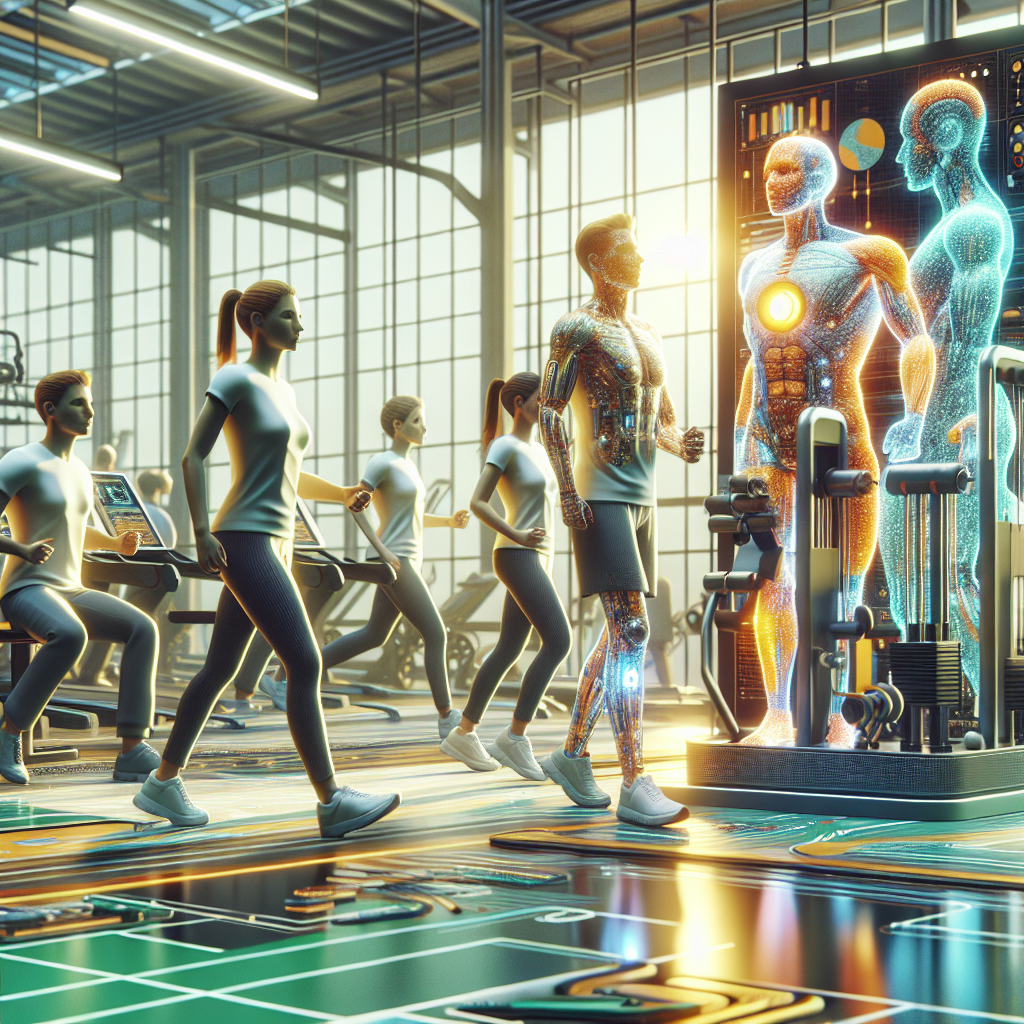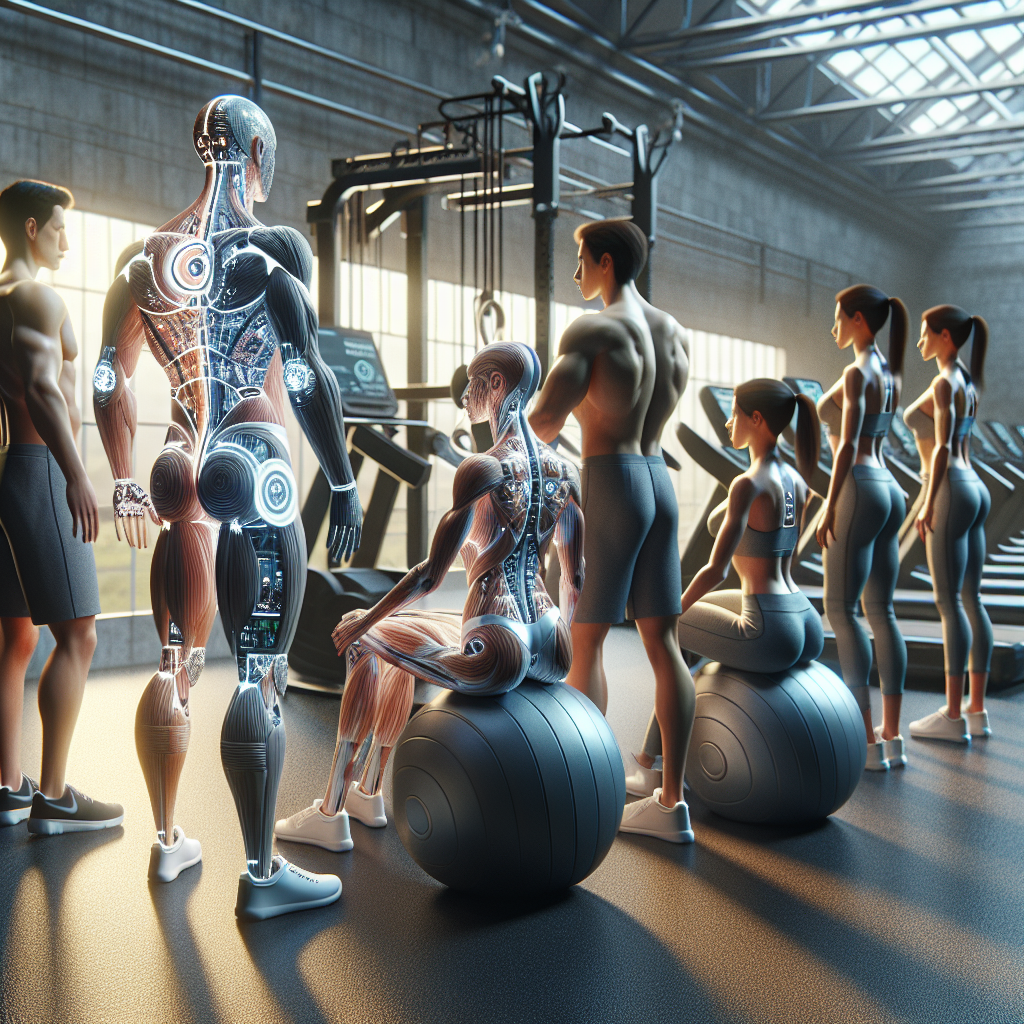Artificial Intelligence (AI) has fundamentally revolutionized the landscape of personalized weight loss strategies, offering a precision and customization that traditional methods often lack. By leveraging machine learning algorithms, data analytics, and pattern recognition, AI tailors weight loss plans to the individual’s unique physiological, psychological, and lifestyle factors, thereby optimizing the effectiveness of the strategies employed. This personalized approach not only enhances the likelihood of achieving and maintaining weight loss goals but also promotes overall health and well-being.
The Intersection of AI and Personalized Nutrition
AI in personalized nutrition represents a significant leap forward in addressing the complexity of human metabolism and dietary needs. By analyzing a plethora of data points, AI systems can tailor nutritional advice to fit individual requirements.
Leveraging Data for Nutrition Insights
AI technologies utilize extensive datasets that include genetic, metabolic, and lifestyle information to provide personalized dietary recommendations. These systems can predict how different individuals respond to various foods, allowing for the development of nutrition plans that are both effective and sustainable.
Data Sources in Personalized Nutrition
- Genetic Data: AI analyzes genetic markers that influence metabolism and food sensitivities.
- Metabolic Rates: Machine learning models estimate basal metabolic rates to optimize calorie intake.
- Lifestyle Data: Incorporates activity levels, stress patterns, and sleep habits to shape nutrition plans.
AI-Powered Dietary Recommendations
AI systems not only provide dietary guidelines but also adapt these recommendations in real-time. For instance, AI can suggest meal adjustments based on daily activity levels or stress-induced eating patterns, ensuring that nutrition plans remain effective under varying circumstances.
Machine Learning in Exercise Personalization
Personalized exercise regimens are another area where AI plays a crucial role. By analyzing an individual’s fitness level, goals, and physical limitations, AI can create highly specialized workout plans.
Adaptive Exercise Programs
AI-driven fitness applications collect data through wearable devices, such as heart rate monitors and GPS trackers, to continuously adjust exercise plans. These adaptive programs ensure workouts remain challenging yet achievable, promoting sustained engagement and motivation.
Wearable Technology Integration
- Heart Rate Monitoring: Adjusts workout intensity in real-time based on cardiovascular response.
- GPS Tracking: Provides insights into running or cycling patterns, optimizing routes and distances.
- Motion Sensors: Analyze movement patterns to prevent injuries and improve form.
Enhancing Motivation with AI
AI tools often incorporate gamification elements, setting personalized milestones and providing feedback to enhance user motivation. These systems can offer virtual coaching, real-time encouragement, and even social connectivity to foster a supportive environment for fitness enthusiasts.
Behavioral Modification through AI
Behavioral change is a critical component of weight loss, and AI excels in creating interventions that are both personalized and effective. By understanding individual habits and triggers, AI can design strategies to foster healthy behavior changes.
Predictive Behavior Analysis
AI systems employ predictive analytics to identify patterns in eating and exercise behaviors. By predicting potential pitfalls, such as emotional eating or workout avoidance, AI can preemptively suggest strategies to counteract these behaviors.
Behavioral Data Utilization
- Tracking Eating Patterns: Identifies triggers for unhealthy eating behaviors.
- Exercise Adherence: Analyzes patterns of workout engagement or avoidance.
- Stress Management: Recognizes stress indicators and suggests coping mechanisms.
Customized Intervention Strategies
Once behavioral patterns are understood, AI tailors intervention strategies to the individual’s needs. This could include personalized reminders, motivational messaging, or adjusting goals to align better with current habits and challenges.
AI-Driven Health Monitoring
Continuous health monitoring is vital for safe and effective weight loss, and AI technologies provide advanced tools for tracking and analyzing health metrics.
Real-Time Health Data Analysis
AI systems continuously monitor vital signs and other health indicators through wearable devices. This real-time data collection enables immediate adjustments to diet or exercise plans if adverse health patterns are detected.
Key Health Metrics Monitored
- Blood Glucose Levels: Important for managing diet in individuals with insulin sensitivities.
- Blood Pressure: Monitored to ensure cardiovascular safety during exercise.
- Body Composition: Tracks changes in muscle mass and fat percentage for accurate progress tracking.
Safety and Risk Management
AI systems are designed to alert users to potential health risks, such as overexertion or nutritional deficiencies. By providing these alerts and suggesting corrective actions, AI ensures that weight loss journeys are safe and sustainable.
Challenges and Considerations
While AI offers significant advantages in personalized weight loss strategies, it also presents challenges that must be addressed to maximize its effectiveness.
Data Privacy and Security
The use of personal data is integral to AI-driven weight loss solutions, raising concerns about privacy and security. Ensuring robust data protection measures is essential to maintain user trust and compliance with regulations.
Algorithm Bias and Fairness
AI systems must be carefully designed to avoid biases that could affect the fairness and accuracy of recommendations. This includes ensuring diversity in training datasets and continuously evaluating the algorithms for unintended bias.
Accessibility and Inclusivity
Ensuring that AI-powered weight loss tools are accessible to diverse populations, including those with disabilities or limited access to technology, is crucial for equitable health outcomes.
Future Prospects of AI in Weight Loss
The future of AI in weight loss strategies is promising, with innovations continually enhancing the personalization and effectiveness of these solutions.
Integration with Emerging Technologies
As AI develops, its integration with other emerging technologies, such as virtual reality and blockchain, could further enhance personalized weight loss strategies. These technologies offer potential for immersive fitness experiences and secure health data management.
The Role of AI in Holistic Health
AI’s role in weight loss is expanding to encompass holistic health, considering mental, emotional, and social factors alongside physical health. This comprehensive approach aims to improve overall well-being, not just weight loss.
The role of Artificial Intelligence in personalized weight loss strategies is vast and transformative. By providing tailored recommendations and continuous support, AI empowers individuals to achieve their weight loss goals effectively and sustainably. As AI technology continues to evolve, its potential to enhance personalized health and wellness strategies will only grow, offering exciting possibilities for the future of weight management.
Transform Your Fitness Journey with PurelyFit!
No More Guesswork, Just Results
Unlock the power of AI to achieve your fitness goals faster and smarter than ever before. With PurelyFit, you get AI-driven workouts tailored to your specific goals, access to over 600,000 recipes for every lifestyle and dietary need, and real-time progress tracking with adaptive plans. Say goodbye to expensive trainers, confusing diet plans, and gym memberships. Start revolutionizing your fitness journey today!













